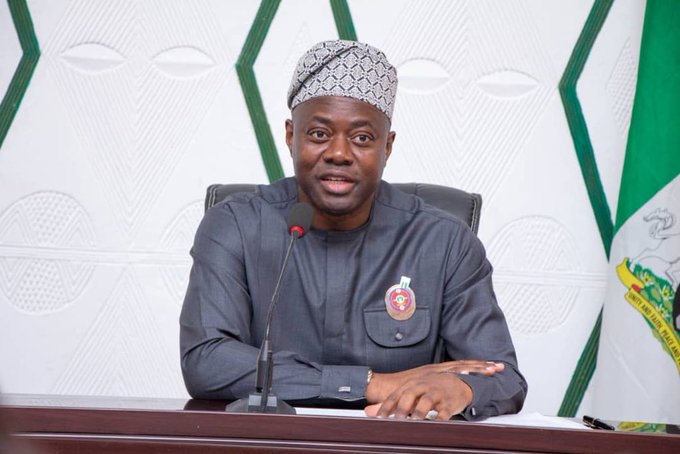Oyo State Deploys COVID-19 Containment Network To Grassroots

Oyo State has recorded 2,771 cases of COVID-19, 1,396 recoveries and 28 deaths and ranks as the third most affected state in Nigeria.
And worried about the spread of the virus, the government has set up a statewide containment and decontamination response network to curtail the virus infection at the grassroots.
To achieve the goal, the government held a COVID-19 Decontamination Response Network training at the University of Ibadan on Tuesday for health officers in the 33 local government areas divided into seven zones.
In her address, Prof. Olanike Adeyemo, the state team lead of the Containment and Decontamination project, said the training was the next phase in the containment of COVID-19 in the state.
“COVID-19 has spread beyond Ibadan and what that means is that the government has to be responsive to do what is right.
“You can imagine if there is an incidence in Ibarapa and another one in Iseyin it would be very difficult for the state containment team to cover all.
“So, what the government is doing is to decentralise the containment efforts.
“Containment is not all about decontamination, it is a lot of things, so this is embedded in the local government system. Every local government has an environmental health unit.
“These are the people that are being trained because they are on the staff of the Oyo State government already to be able to take up this task as frontliners,” she said.
Adeyemo said 77 environmental health officers were being trained and each team had been provided a revolving N500,000 seed grant for the purchase of chemicals and logistics.
She stressed the need for self policing, adding that a compliant form had been made available to report violators of COVID-19 guidelines.
States under reporting cases
Speaking on the high rate of COVID-19 cases in the state, Adeyemo said it was because people were being infected and “that is why we have the numbers and there is need to work more on compliance to bring the number down.
“But if you look at the mortality rate and you look at Oyo State and compare it with Edo State that is behind us and you compare the mortality, definitely they are under reporting in those states.
“I think Oyo State is doing more testing and we are reporting a closer to accurate number and that is why we are high there.
“But when you compare the mortality rate for people behind Oyo State on the NCDC (Nigeria Centre for Disease Control) list of confirmed cases, then you will see that their mortality is higher.
“And it is just science, the more the case the more likely people will die. So it’s easy to extrapolate that those states that have very high mortality but low numbers of confirmed cases are under reporting,” Adeyemo said.
Reason for decentralisation of project
Mr Mojeed Mogbonjubola, the Deputy Chief of Staff to Oyo State Governor, said the decentralisation of containment network was a goodwill of Gov. Seyi Makinde to curtail the spread of COVID-19.
“It is quite unfortunate that the pandemic is spreading really wide and we couldn’t contain it in Ibadan.
“What His Excellency is trying to do in conjunction with the University of Ibadan is to extend the committee team to other regions of the state.
“This is about a call to service. Like I always advise people it is a privilege for everybody to be part of this and it is something that will stay with us for a very long time.
“Since there is no vaccine to control the virus, the only way is to contain it and decontaminate affected zones,” he said.
People must take responsibility
Alhani Akeem Azeez, the Personal Assistant to the Governor of Oyo State, urged the people to own their actions as well as their safety since the virus had spread all over the state.
Elder Tunde Adeyanju, the Permanent Secretary, Ministry of Local Government and Chieftaincy Affairs, said the virus did not affect only the elite or rich as some people believed.
Adeyanju said there was the need for a very good response in view of the rate of infection in the state to halt the spread.
Prof Victoria Adetunji, the technical expert of the team, urged participants to adhere to precautions in handling the decontamination equipment for safety reasons and engage in evaluation of their activities regularly.
Each zone received containment equipment for the assignment
Support Our Journalism
There are millions of ordinary people affected by conflict in Africa whose stories are missing in the mainstream media. HumAngle is determined to tell those challenging and under-reported stories, hoping that the people impacted by these conflicts will find the safety and security they deserve.
To ensure that we continue to provide public service coverage, we have a small favour to ask you. We want you to be part of our journalistic endeavour by contributing a token to us.
Your donation will further promote a robust, free, and independent media.
Donate HereStay Closer To The Stories That Matter




